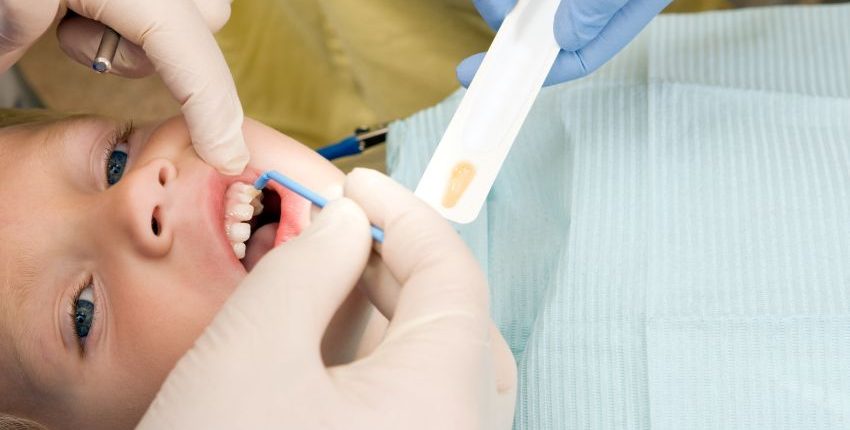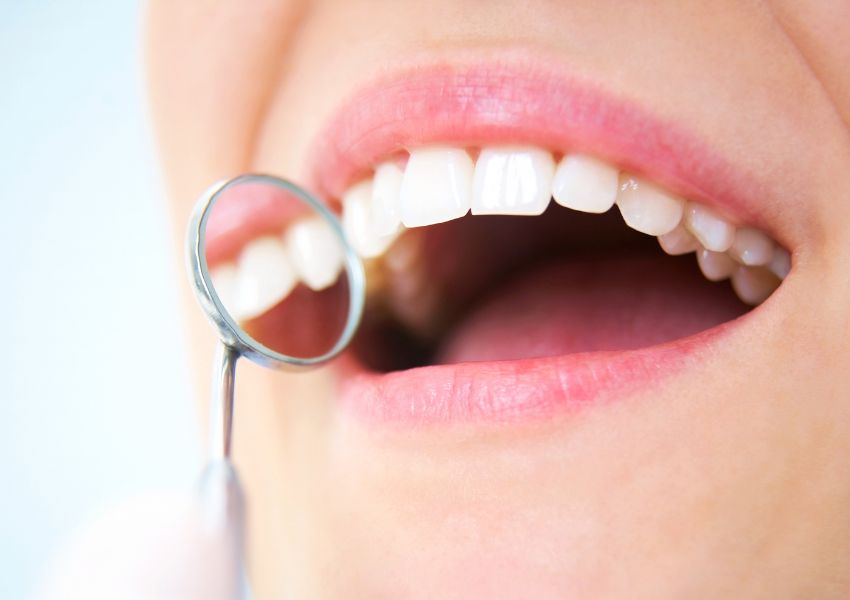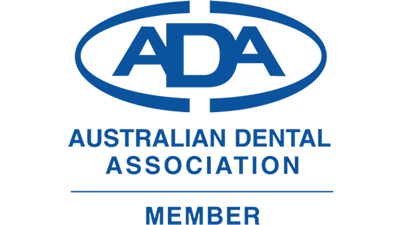Key Takeaway
Fluoride, a naturally occurring mineral, serves as a powerful defence against tooth decay. It works by replenishing minerals in the tooth enamel and impeding the accumulation of harmful bacteria in the oral cavity. However, it’s crucial to note that excessive fluoride intake can lead to adverse effects.
The Importance of Fluoride for your Teeth
Why is fluoride important for teeth? In our journey to maintain optimal oral health, one naturally occurring mineral stands out for its significant role – fluoride. While often underestimated, fluoride plays a pivotal role in preserving the health and resilience of our teeth. This indispensable mineral is the unsung hero in the fight against tooth decay and cavities, fortifying our teeth and enabling them to withstand the daily assaults they face. As we look into the importance of fluoride for your teeth, we hope to shed light on its benefits and functions, and why professional fluoride treatments could be a worthwhile addition to your dental care routine. Join us as we explore the world of fluoride and its crucial role in maintaining that radiant and healthy smile that everyone desires.
What is Fluoride?
Fluoride is a naturally occurring mineral that’s found in foods, water, plants, and toothpaste. It plays a vital role in dental health, as using fluoride toothpaste and drinking fluoridated water can help prevent tooth decay. This is a strategy advocated by major health organisations globally.
Where is Fluoride Found?
Fluoride is an element inherent in our environment – it’s not a medication. Its presence is natural in air, rock, soil, plants, and all water forms, including fresh and seawater. Many foods and drinks have natural fluoride content. In addition, it’s intentionally added to:
- Local water supply
- Dental hygiene products like toothpaste, gels, and mouth rinses
- Special products applied to your teeth by a dental professional
What is Fluoride Treatment?
Fluoride treatment is a preventive dental procedure intended to enhance the health and strength of your teeth. During this treatment, a highly concentrated form of fluoride – much more potent than typically found in toothpaste or drinking water – is applied directly to the teeth. This fluoride application, which could be in the form of a rinse, foam, gel, or varnish, aids in the remineralization of teeth enamel, helping to combat tooth decay and cavities. This quick and efficient treatment allows for the absorption of fluoride into the teeth, creating a stronger, more resistant barrier against the acid attacks caused by plaque bacteria and sugars in the mouth.
Is it good to get fluoride treatment?
The answer is a resounding yes. Fluoride treatment offers multiple benefits. It strengthens your teeth, making them less prone to cavities and other infections. Moreover, it enhances the usage of other crucial minerals in your teeth and body. Both phosphate and calcium usage are often improved with a fluoride treatment.
Water Fluoridation: A Shield Against Decay
Water fluoridation is crucial in protecting teeth against decay. It acts as a repair tool when acid attacks the tooth surface, fixing any damage before it worsens. A constant, low-level supply of fluoride, like that from drinking water, is therefore beneficial for your teeth. Unchecked dental decay can lead to a host of community-wide problems, such as pain, suffering, and financial burden.
Benefits of Water Fluoridation
Water fluoridation carries numerous benefits. For instance, it:
Fluoride: Protector of Adult and Baby Teeth
Fluoride safeguards both adult and baby teeth against decay. It helps protect against surface decay in older adults, prevents tooth decay in children, and wards off early loss of baby teeth due to decay. It can also prevent painful and expensive dental complications like tooth abscesses or other permanent tooth damage.
Other Dental Protection Measures
While fluoride plays a crucial role in maintaining oral health, it’s just one part of a broader strategy for comprehensive dental protection. Here are some additional measures that can contribute to keeping your teeth and gums healthy:
Eat a Healthy Diet: What you eat has a significant impact on your oral health. Consuming a balanced diet rich in vitamins, minerals, and low in sugar can help maintain strong, healthy teeth. Foods high in calcium, such as dairy products, and phosphorus-rich foods like meat and eggs, contribute to tooth enamel health.
Regular Brushing and Flossing: Consistent oral hygiene is paramount for good dental health. Brush your teeth twice a day with fluoride toothpaste, and don’t forget to floss daily. This routine helps remove plaque and food particles, preventing tooth decay and gum disease.
Regular Dental Check-ups: Regular visits to Happy Smiles Dentist Hornsby, are essential to detect potential issues early and maintain optimal dental health. Routine professional cleanings ensure the removal of plaque and tartar build-up that regular brushing and flossing can’t eliminate.
Use a Fluoride Toothpaste: Incorporating a fluoride toothpaste into your daily oral hygiene routine can reinforce your teeth’s defences against decay. Fluoride helps to remineralize enamel, keeping your teeth strong and healthy.
By integrating these measures with fluoride use, you are taking an all-encompassing approach to dental health. This combination of good habits can help ensure a lifetime of healthy smiles.
Special Attention to Children’s Teeth
Children’s teeth require extra protection as they’re developing.
Guidelines to follow include:
- Brush teeth without toothpaste until 18 months of age
- Introduce a low-fluoride toothpaste at around 18 months old
- Use a child-size toothbrush with soft bristles
- Use only a pea-sized amount of toothpaste
- Encourage children to spit out toothpaste, not swallow it
- Supervise children while brushing until they can do it well on their own
- Continue using low fluoride toothpaste until they are six years old
Dental Fluorosis: A Cautionary Note
While fluoride is an essential mineral for oral health, an overconsumption, particularly in early childhood, can result in a condition known as dental fluorosis. This condition manifests as slight discolorations or streaks in the form of white lines, spots, or even pearly-white mottling on a child’s adult teeth. Although it doesn’t typically affect the function of the teeth and can be challenging to spot, dental fluorosis is an important consideration when using fluoride products.
Preventing dental fluorosis mainly involves adhering to recommended toothpaste guidelines. These include monitoring the amount of toothpaste your child uses, ensuring it’s no larger than a pea-sized amount. Furthermore, encouraging your child to spit out the toothpaste after brushing and avoid swallowing it can help control their fluoride intake.
The goal is to strike a balance between gaining the preventive benefits of fluoride while avoiding excessive consumption. Therefore, maintaining open lines of communication with your dental professional about fluoride use is crucial. For instance, if your child’s drinking water isn’t fluoridated, you should consult with your dentist about the appropriate use of fluoride toothpaste.
Remember, a proactive approach and proper guidance are key to maximising the benefits of fluoride while minimising any potential risk of dental fluorosis.
Water Quality and Safety with Fluoridation
Fluoridation of water is a globally recognised strategy to improve dental health. Far from negatively impacting the quality of your water, it is a carefully controlled process that contributes to the overall well-being of a community’s dental health. Backed by leading Australian and international health, medical, and dental organisations, water fluoridation is celebrated for its role in protecting teeth from decay.
Contrary to certain misconceptions, the fluoride introduced into water supplies is well regulated and monitored to ensure its safety. It’s important to note that it doesn’t alter the taste or smell of your drinking water, as fluoride itself has no distinctive taste or smell.
Scientific evidence reinforces the safety of water fluoridation, with no substantiated links to adverse effects on bone development, hip fractures, or cancer. This finding has been reiterated by various studies and research, establishing the safety of water fluoridation in the amounts used in public health practices.
Moreover, most home water filters, with the exception of reverse osmosis systems, don’t remove fluoride, thus ensuring you receive the dental benefits of this mineral. You can also check with your local water authority to confirm if your supply has fluoride added to it.
Overall, the process of water fluoridation is a testament to the emphasis we place on preventive healthcare and reflects our collective commitment to promoting dental health for all.
Endorsement for Water Fluoridation
Numerous local, national, and international health organisations endorse water fluoridation, recognising its significant role in dental health.
- Arthritis Australia
- Australia’s National Health and Medical Research Council
- Australian Dental Association
- Australian Institute of Health and Welfare
- Australian Medical Association
- Cancer Council Victoria
- Diabetes Victoria
- FDI World Dental Federation
- Osteoporosis Australia
- Public Health Association of Australia
- The Pharmacy Guild of Australia
- World Health Organization
Happy Smiles Dental Services Hornsby & Surrounding Suburbs for all your dental needs
Mt Colah
Wahroonga
Waitara
Hornsby Heights
Hornsby
Asquith
Pymble
Normanhurst
Pennant Hills
Contact Us
Looking to book an appointment or just want some more information? Contact us to see how we can help you today.








